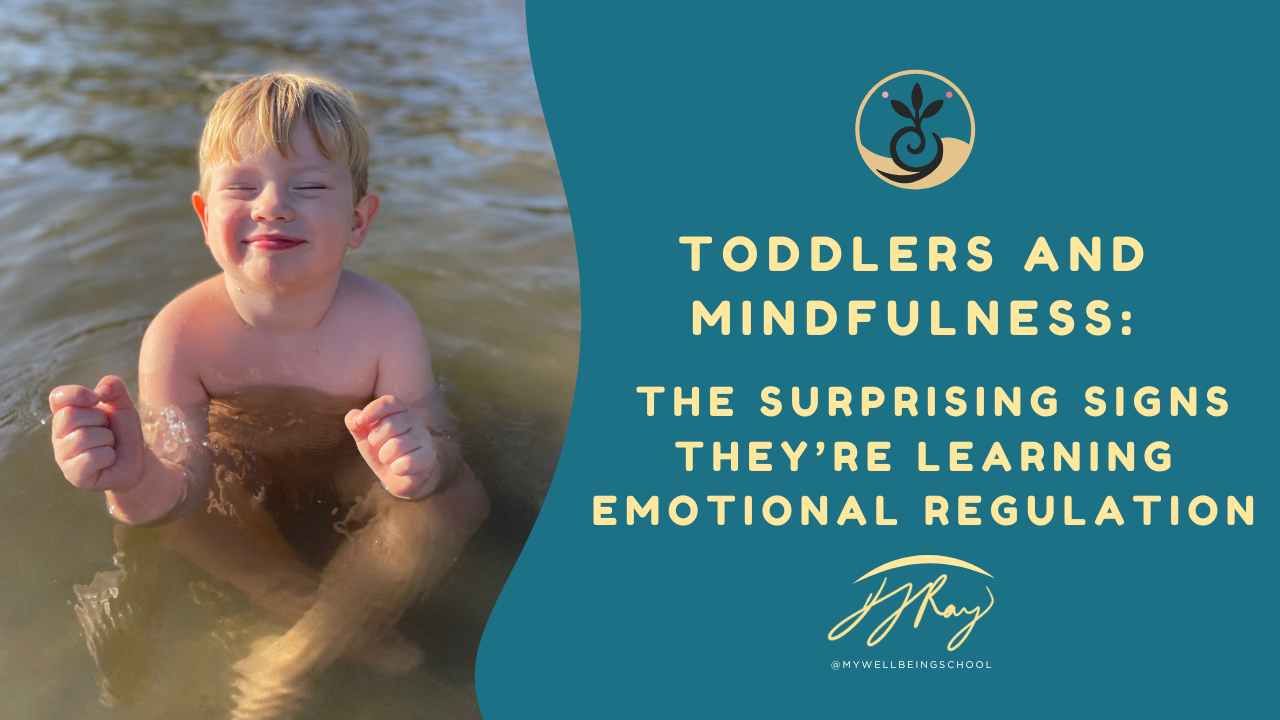Toddlers and Mindfulness: Learning Emotional Regulation

Toddlers and Mindfulness: Learning Emotional Regulation
The other day, my toddler turned to me in the sea — eyes soft, body still — and said:
“Mummy, this is my calm face.”
He was meditating.
In his own toddler way. In the ocean. With intention.
And I nearly burst into tears.
Because in that quiet, sun-drenched moment, I realised something powerful:
They’re taking it in.
All of it.
The breathing. The words. The tone. The energy. The stillness. The way we model how to move through the world.
Even when we feel like it’s not landing — it is. In ways we might not see until suddenly, one day… we do.
🧠 Toddlers Absorb Everything
Children are sensory sponges. Long before they can explain what they’re feeling, they’re soaking in how we respond to emotions, how we breathe through chaos, how we hold space for big feelings.
They’re watching:
-
How we regulate ourselves when frustrated
-
How we say “I need a moment” or “Let’s take a breath”
-
How we describe emotions with language
-
How we show up for them, day after day
Rhion saying, “This is my calm face,” wasn’t just cute. It was a mirror. A reflection of all the little things we’d practiced:
-
Reading Helping Toddlers with Feelings together
-
Doing a few deep belly breaths before bedtime
-
Naming feelings instead of shaming them
-
Letting meltdowns pass like weather, not treating them like failures
💛 These Moments Matter More Than We Know
You might feel like:
-
Your toddler isn’t listening
-
The mindfulness exercises aren’t working
-
The feelings talk is going over their head
-
The calm voice is wasted on a whirlwind of emotion
But every time you model emotional regulation, every time you pause instead of react, every time you say:
“It’s okay to feel angry.”
“Let’s take a breath.”
“I’m with you.”
You are planting seeds.
And eventually… they sprout. Sometimes right there in the sea.
✨ Trust the Process
This is your reminder that:
-
You’re doing better than you think.
-
Your child is learning, even when you’re not sure they are.
-
Emotional literacy doesn’t always show up in worksheets or perfect behaviour — it shows up in small, golden moments of connection.
📚 Want to Explore More?
If you’re on this journey with your little one, Helping Toddlers with Feelings is a gentle, visual tool designed to support your child in:
-
Naming their emotions
-
Trying simple calming strategies
-
Learning that feelings are safe, and help is always near
Because sometimes, the best proof we’re on the right track is a tiny voice saying,
“This is my calm face.”
And meaning it.

